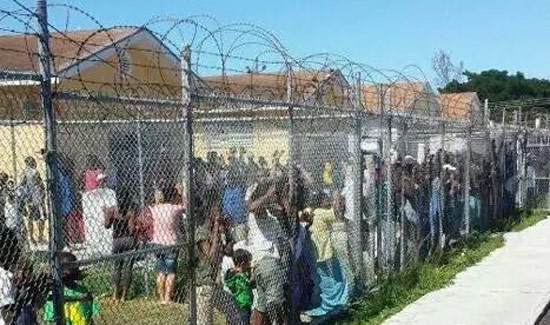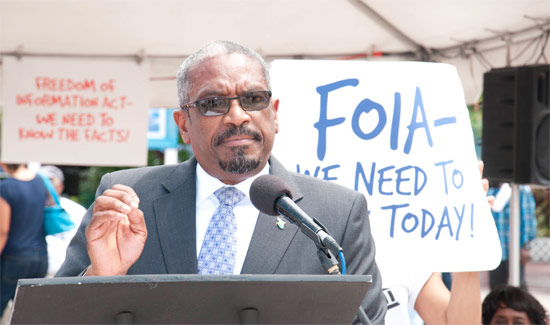
Immigration detainees from several countries are describing the Carmichael Road Detention Center in terms reminiscent of a Nazi interment camp, a local human rights group has disclosed.
In response to the government’s harsh new immigration enforcement policy, the Grand Bahama Human Rights Association (GBHRA) has called for testimonials concerning wrongful detentions and mistreatment. The dozens of responses thus far paint a terrifying picture of the country’s main immigration holding facility, the association said.
“Over the past several weeks, we have heard from Haitians, Americans, Dominicans, Brazilians about the deplorable conditions at the center and the brutal treatment of detainees,” said (GBHRA) president Fred Smith, QC.
“Several compared it to Auschwitz or similar horrors from history’s darkest moments. Together, these testimonials paint a picture of a concentration camp where there is inedible food, insufficient water and shelter, and where verbal, mental and physical abuse are endemic.”
Smith said that while this might sound like an exaggeration, the term concentration camp refers to any place where persons are held without trial for reasons of their religion, political persuasion, race, ethnicity or nationality.
“What is the Detention Center if not our very own concentration camp? A place where people are held without due process and in violation of their fundamental rights, merely because of their supposed heritage and background. In fact, I am unaware of any statutory basis for the center – it may well be that the Immigration Department has been running an illegal interment facility, under abominable conditions, for decades.”
Smith gave one example from the many reported to the GBHRA – that of a Dominican tourist in possession of a Bahamian visa, who was held at the center for four days in October. He said the woman described conditions as “horrible”, with people sleeping on the floor and several women forced to share bedding.
“This tourist, this visitor to our country, was forced to live in unsanitary conditions, and given what she described as disgusting food, and far from sufficient water,” Smith said. “She told of between 40 and 50 women crammed into a single dorm, with up to five women sharing two small foam mattresses. Basic necessities, such clean clothes and toiletries were not provided. Asked how she was treated, the woman said ‘like a dog’.”
The GBHRA has already stated its intention to file a class action lawsuit against the government on behalf of those rounded up without warrants in indiscriminate raids, as well as those who were beaten or otherwise abused since the launch of the new enforcement policy on November 1. Smith said the association also intends to represent anyone held at the Detention Center without charge, bail, or access to an attorney.
“The constitution demands that these rights be afforded to everyone taken into custody by law enforcement,” he said. “The government cannot simply continue to break the law. These people deserve and will get justice.”
Joseph Darville, vice president of the GBHRA, lamented that The Bahamas, a country at the forefront of the fight against Apartheid in the 1980s, has regressed to the point where official policies can be adopted that excuse discrimination and heighten ethnic tensions.
“I remember that current Minister of Immigration Fred Mitchell, who appears to he the architect of this new policy, was very vocal and passionate about racism and discrimination back in those days,” he said. “It is a crying shame to see someone who once stood for tolerance and progress now presiding over this tragedy.”
By Grand Bahama Human Rights Association
Caption: The Carmichael Road Detention Center in the first week of the government’s harsh new immigration enforcement policy which has been described by the GBHRA as immoral, inhumane and unconstitutional.



